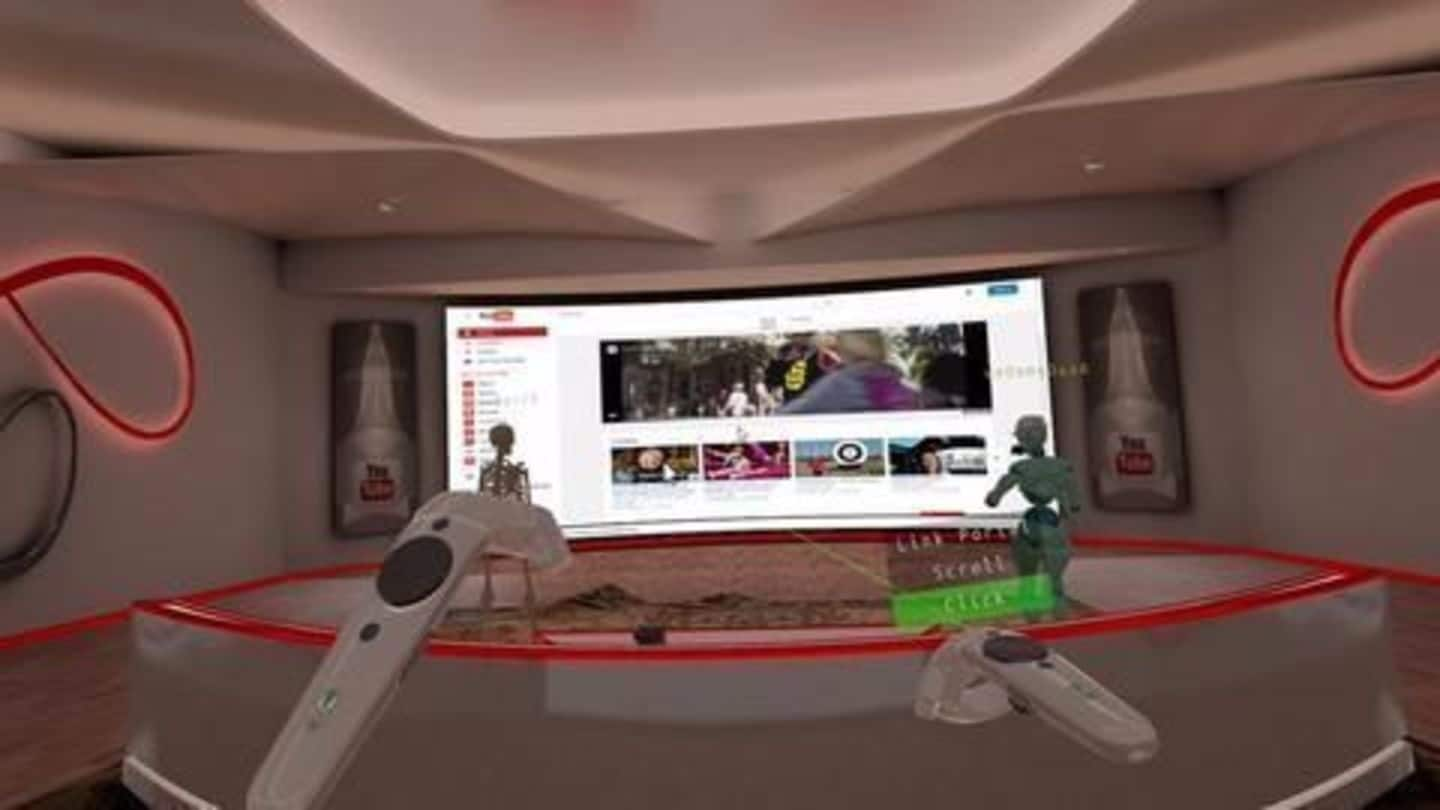
This browser lets you view websites in 3D
What's the story
Virtual Reality has finally started to become a reality after years of trials.
At the recent 'VRTO 2017: Virtual and Augmented Reality Conference and Expo' in Toronto, attendees experienced an immersive way to consume web content.
JanusVR, a specialized internet browser, allowed them to experience websites in 3D, converting content into clickable galleries/displays.
Know more about the combination of VR and Internet.
Details
Building immersive web content experiences
Toronto-based start-up JanusVR has built the unique virtual reality web browser that combines the power of internet and the potential of VR.
According to the company's website, users can experience "webspaces become 3D spaces interconnected by portals."
Co-founder of JanusVR Karan Singh said, "We're essentially trying to reimagine the way we interact with the internet and with content."
Details
About the VR web browser
JanusVR is very aptly named after the two-faced Roman God Janus who looks into the past and the future, the god of transitions and portals.
Karan Singh is a professor at the University of Toronto's Department of Computer Science.
James McCrae, JanusVR's other co-founder, was Singh's student at the University.
The web browser has 100,000 users from across 145 countries.
Working
How does JanusVR work?
According to the founders, JanusVR web browser makes existing websites look like rooms.
It allows user avatars to "saunter" through immersive web content; they can select the content they want to view in a projected theatre-like style.
McCrae said JanusVR spatializes the web using an algorithm that takes web elements and "mashes" them together to create a 3D environment.
Quote
It's a huge ambitious project: Singh
Karan Singh said: "I would say it's an incredibly exciting technology that's giving you a glimpse of what the future of the internet is going to be. Nobody does what we do, in terms of social, collaborative, immersive browsing. That is unique."
Innovation
The world has evolved, but not browsers: Singh
Singh said web browsers, introduced in the 1990s, are pages comprising text and images; the design didn't change even though the world has changed.
Working with the old model even as the immersive world is gaining momentum is "too much patchwork".
So, JanusVR is both evolving and reimagining the paradigm; He added, "Webpages are now web spaces and links are portals."
Quote
JanusVR has potential for massive growth: McCrae
JanusVR's reach in terms of the magnitude of the web is small. However, McCrae said: "We'll continue to embrace it as it grows. What we want to do is push the frontier on people thinking of websites instead of destinations as immersive spaces."
Virtual Reality
VR may become common enough in not-too-distant future: McCrae
Users need headset and controller to experience this VR and Internet combination.
McCrae said as the hardware's price continues to come down, more people would explore the immersive web.
Apart from the browser, the startup also has JanusWeb (accessible through other browsers for 3D websites) and Janus 360 (VR content-sharing platform).
JanusVR is expected to release its mobile app later this year.